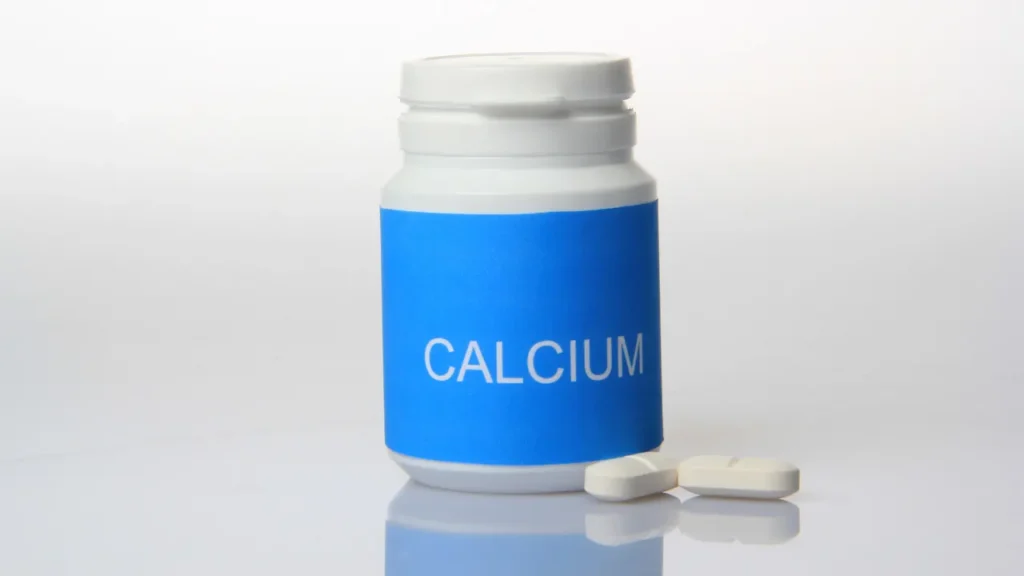Fast-growing bamboo, a member of the Poaceae family of grasses, is well known for its numerous uses in building, textiles, and food. In addition to these, bamboo has attracted interest as a nutritional supplement, particularly because it contains silica and other bioactive substances. The chemistry, health advantages, recommended dosage, negative effects, possible drug interactions, and appropriate usage of bamboo as a dietary supplement are all covered in detail in this article.
You May Also Like:
The Best Mushroom Supplements for Memory: 5 Top Brands Reviewed
Finding the Best Supplements for Brain Fog After COVID: 5 Top Brands Reviewed
BAMBOO: Benefits, Dosage, Side Effects, Drug Interactions, And Other Important Information is an original (NootropicsPlanet) article.
Nature of Bamboo
The grass family Poaceae includes the adaptable and quickly growing plant known as bamboo, which has approximately 1,400 varieties primarily found in Asia, Africa, and the Americas. It is distinguished by its tall, hollow, and segmented culms, which can grow to a height of more than 30 meters. The plant’s intricate root structure, which includes both rhizomes and roots, aids in its speedy development and allows it to regenerate after harvest swiftly.
Because of bamboo’s distinctive qualities—such as strength, flexibility, and renewability—it is now a highly prized resource in many different businesses and civilizations. Bamboo has historically been used for building, furniture, food preparation, and even medicine. Bamboo has acquired popularity recently as a long-lasting and environmentally responsible substitute for conventional materials like wood, plastic, and concrete.
Bamboo’s high silica content and the presence of other bioactive chemicals, which have been discovered to have several health benefits, have also increased interest in it as a nutritional supplement. These advantageous characteristics have prompted a greater investigation of bamboo’s possible uses in the fields of health, wellness, and medicine.
Health Benefits of Bamboo
Several health advantages have been linked to using bamboo as a nutritional supplement, including:
- Better skin, hair, and nail health: Bamboo-derived silica can improve the strength and look of skin, hair, and nails since it aids in manufacturing collagen.
- Support for bone health: Bamboo can help preserve bone density and lower the risk of fractures by encouraging bone mineralization.
- Enhanced immunological response: Bamboo’s antioxidant and anti-inflammatory qualities can help the immune system function by reducing oxidative stress and inflammation.
- Cardiovascular health: An early study suggests that bamboo flavonoids and other bioactive substances may help improve cardiovascular health by lowering blood pressure, cholesterol levels, and other risk factors.
- Although further research is required, preliminary studies indicate that silica may have a beneficial impact on cognitive performance.

Chemistry of Bamboo
Silica, a naturally occurring substance present in various amounts within different species of bamboo, is the main element of interest in bamboo as a nutritional supplement. Silica, also known as silicon dioxide (SiO2), is an essential trace element for the human body because it aids in producing collagen, promotes bone mineralization, and participates in a variety of cellular functions. In addition to silica, bamboo also includes additional bioactive substances that have been shown to have antioxidant, anti-inflammatory, and antibacterial activities, such as flavonoids, glycosides, phenolic acids, and others.
Physiological Mechanism of Action on the Body and Brain
Bamboo has many health advantages, which are mainly explained by its high silica content and the presence of numerous bioactive chemicals. These ingredients have a variety of physiological impacts on the body and brain after consumption, including the following:
- Silica plays a role in creating collagen, which is essential for the stability of connective tissues like skin, hair, and nails. Bamboo silica can increase skin suppleness, fortify hair and nails, and support joint health by encouraging collagen synthesis.
- Silica contributes to bone strength and integrity by contributing to bone mineralization, which benefits bone health. In animal experiments, silica from bamboo has been demonstrated to boost bone density and lower the incidence of fractures.
- Antioxidant qualities: Flavonoids and phenolic acids present in bamboo serve as antioxidants by scavenging free radicals and lowering oxidative stress. This could help shield cells and tissues from harm and halt the emergence of a number of chronic diseases.
- Anti-inflammatory actions: Bioactive bamboo constituents, including flavonoids and glycosides, have anti-inflammatory effects that may help to reduce bodily inflammation and promote general health.
- Cognitive function: Although the effects of bamboo on cognitive function have not been thoroughly studied, some research points to the possibility that silica may be necessary for maintaining the structural integrity of neurons and promoting synaptic plasticity.

Optimal Dosage of Bamboo
The ideal dosage of bamboo as a dietary supplement depends on the person’s age, state of health, and particular health objectives. A daily silica intake of 20 to 50 mg is often advised for individuals. However, as individual needs may differ, speaking with a healthcare provider before starting any supplement routine is crucial.
Side Effects of Bamboo
Bamboo is considered a relatively safe dietary supplement when consumed in the recommended quantities. However, excessive silica consumption may cause some adverse effects, such as:
- When taking large amounts of silica extracted from bamboo, some people may experience digestive pain, bloating, or diarrhea.
- Kidney stones: Those predisposed to producing kidney stones may be more likely to do so if they consume a lot of silica. Therefore, before using bamboo supplements, people with a history of kidney stones should talk to a doctor.
- Drug interactions: Bamboo contains bioactive substances that could interact with some medicines and change their effectiveness. For instance, bamboo supplements may affect how some minerals, including iron, are absorbed and may interact with anticoagulant drugs to raise the risk of bleeding.
Potential Substance Interactions with Bamboo
It is crucial to be mindful of potential interactions with other substances, like any dietary supplement. The following are some probable interactions with bamboo supplementation:
- Mineral absorption: If high silica consumption is not carefully controlled, it may prevent the absorption of several minerals, such as calcium and iron.
- Anticoagulants: Flavonoids derived from bamboo might interact with drugs that prevent blood clotting, like warfarin, raising the risk of bleeding.
- Antiplatelet medications: Bamboo’s anti-inflammatory properties may amplify the effects of antiplatelet drugs, raising the risk of bleeding.
- Diuretics: Bamboo-derived silica may amplify the effects of diuretics, resulting in an electrolyte balance that is out of balance.
- People should speak with a healthcare provider before mixing bamboo supplements with any drugs or other supplements to reduce the potential for adverse effects.

Best Responsible Uses of Bamboo as a Nutritional Supplement
Consider the following suggestions to make sure bamboo is used as a dietary supplement safely and effectively:
- Speak with a healthcare practitioner: It’s important to discuss your unique needs, current health situation, and any potential interactions with a trained healthcare provider before beginning any supplement routine.
- Pick a trusted brand: To ensure the supplement is clean, pure, and effective, choose a high-quality bamboo supplement from an established supplier.
- Comply with dosing instructions: Follow the guidelines for silica consumption (20–50 mg for adults) and alter the dosage as directed by a medical practitioner.
- Look for any side effects or bad reactions, and stop using the product immediately or seek medical advice if necessary.
BAMBOO:
Conclusion
Bamboo supplements, derived from various parts of the bamboo plant, offer a range of potential health benefits, including their nutritional value, antioxidant properties, support for digestive health, anti-inflammatory effects, potential cholesterol-lowering effects, contribution to bone health, and suitability for weight management. Incorporating bamboo shoots or leaf extract into the diet may improve overall health and well-being. However, more research, particularly clinical studies in humans, is needed to elucidate further the specific health effects of bamboo and its various components. It’s essential to choose high-quality supplements from reputable sources and consult with a healthcare professional before starting any new supplement regimen, especially if you have underlying health conditions or are taking medications.

References:
- Bamboo-derived silica and its potential health benefits. Retrieved From: https://www.ncbi.nlm.nih.gov/pmc/articles/PMC4509646/
- The role of silica in collagen synthesis and its impact on skin, hair, and nails. Retrieved From: https://onlinelibrary.wiley.com/doi/full/10.1111/jocd.12129
Important Note: The information contained in this article is for general informational purposes only, and should not be construed as health or medical advice, nor is it intended to diagnose, prevent, treat, or cure any disease or health condition. Before embarking on any diet, fitness regimen, or program of nutritional supplementation, it is advisable to consult your healthcare professional in order to determine its safety and probable efficacy in terms of your individual state of health.
Regarding Nutritional Supplements Or Other Non-Prescription Health Products: If any nutritional supplements or other non-prescription health products are mentioned in the foregoing article, any claims or statements made about them have not been evaluated by the U.S. Food and Drug Administration, and such nutritional supplements or other health products are not intended to diagnose, treat, cure, or prevent any disease.


